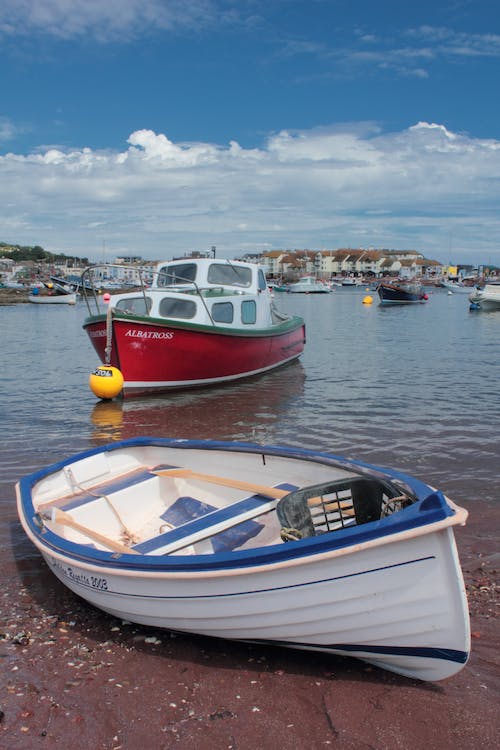Compared to doing recreational activities on dry land, boating with kids needs more detailed safety planning. Especially since, unlike on land, you’re afloat in the middle of the vast water, and help might not come as fast as you would want them to be.
Going on a boat ride together with your kids and other family members can be safe and enjoyable, especially if you ensure that proper safety precautions are taken before and during your ride. Here are some of the boat safety tips and rules to ensure your children’s safety on a boat.
Before you embark on your trip, make sure you do the following:
Buy a good life jacket
Life jackets ensure your children’s safety. Take them to a life jacket fitting and note that their weight determines what life jacket size you have to get for them. Children who are or under 13 years old are required to wear a life jacket approved by the U.S. Coast Guard for the boat trip’s entire duration. Life jackets for kids are specifically designed to provide extra safety, including the following: padded head support to keep your kid’s head above water, a crotch strap to prevent the jacket from sliding up, and a life jacket handle to help you lift your child out of the water with ease.
Enroll your family in a boat safety course
It is necessary to emphasize the importance of safety to your family, especially your children. Enroll them in a safety course and include all your children, particularly the older ones, since many states require them to take a boat safety course to receive a certification that they have to carry with them aboard the boat.
Sign up your children for swimming lessons
Enroll your kids in swimming lessons to have them learn how to tread and float in the water and have them get used to it.
Ensure that your kids learn the following:
- Jump in or step into water over their head and resurface
- Tread or float in water
- Exit the water
- Link breathing with forwarding movement
- Shift around in the water and steer to safety
Teach your children about the different types of water
Educate your kids that swimming in a pool has a huge difference from swimming in open water. Make them aware of potential hazards such as depth, currents, limited visibility, undertow, and uneven surfaces distinct to open water.
These situations make swimming in open water more challenging than when done in a pool. Also, discourage your kids from diving, especially if you are not certain of the nature of the surface below the water or how shallow it is.
Learn CPR
Knowledge of CPR will save lives. It is essential to seize the extra precaution of learning CPR, as it will be useful in emergencies and any unexpected incidents.
Have your boat childproofed
Ensure storing away any sharp and loose items that can jeopardize your child’s safety and keep them in storage easily accessible whenever you needed them.
During your ride on the water, you must do the following:
Institute and implement rules
Establish rules clearly for your children on the boat trip, such as no running while the boat is in the water, remaining seated at all times, and keeping both hands and feet on the boat during the duration of the ride.
Once every person has boarded the boat, you can use up a couple of minutes to go over the basic boat safety rules. Remind your children to wear their life jackets or other floatation devices the whole time. Inform everyone about the proper distribution of passenger load and ensure that everyone in the boat knows the “kill switch” location if the need for it arises.
Also, emphasize the importance of keeping hydrated, especially when you’re under the sun’s harsh rays, and make sure to point out the location of the drinking water to everyone.
Keep your children entertained
Kids on a boat are just like they are on land. They will most likely get bored and into trouble. Keep them entertained by bringing books on boating and water toys, teaching them how to read a map, allowing them to sit beside the captain at the helm of the boat, and pointing out interesting points found on the map that you can observe from your boat.
Prepare yourself to fight motion sickness
One of the most bothersome experiences to have while on a boat trip is getting seasick, and it can affect your kids. Thankfully, there are over-the-counter remedies especially formulated for children over two years old.
Make sure to have these items on board:
- Snacks
- Water and liquids to help with hydration
- Sunscreen, sunglasses, and hat
- Ponchos
- Jackets, towels, and blankets
- Plastic bags to store wet clothes

